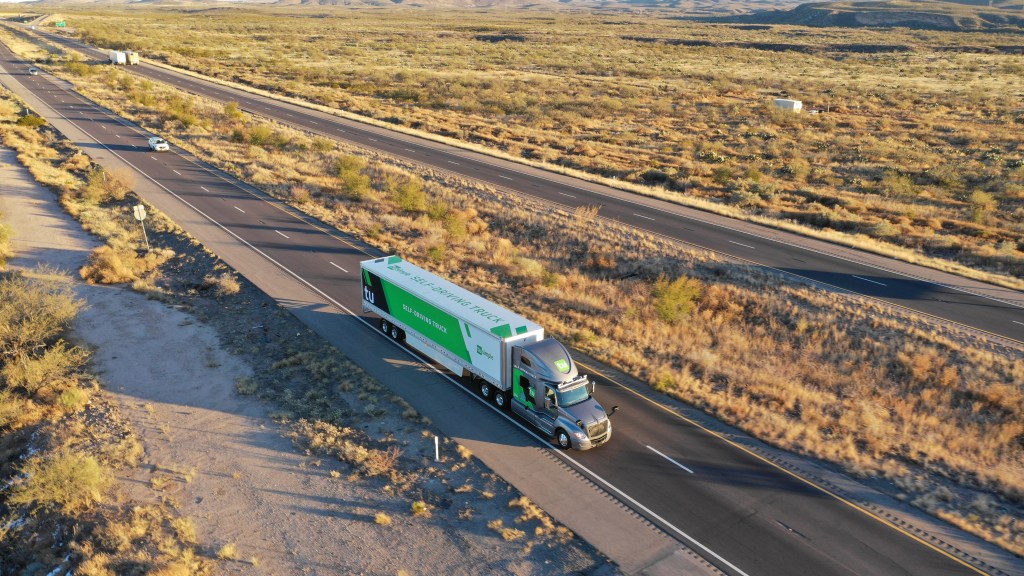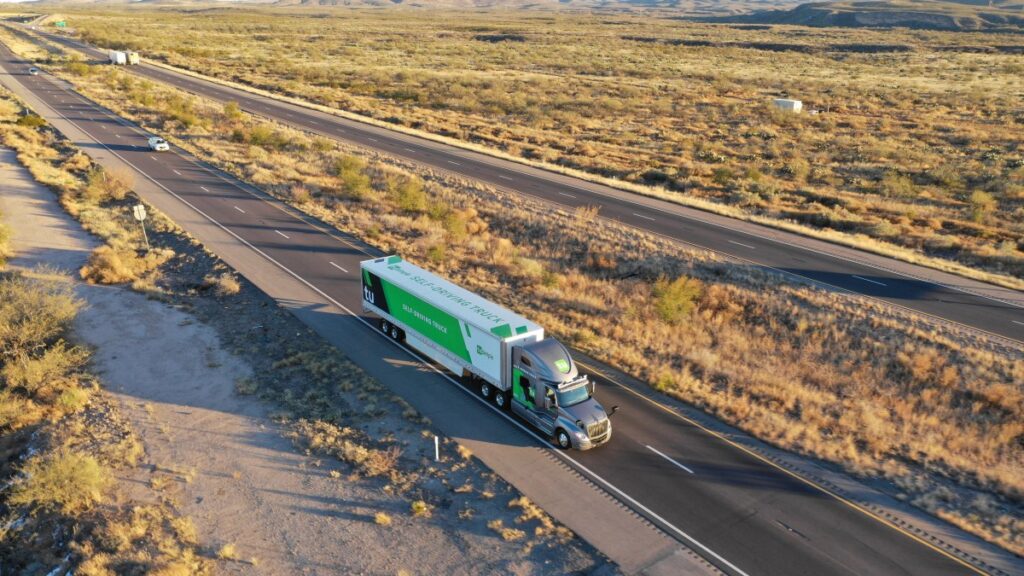
Image credits: TuSimple
When TuSimple went public in 2021, it was emerging as the nation's leading self-driving truck developer. Now, after a series of internal disputes and the loss of a key partnership with truck manufacturer Navistar, TuSimple is exiting the U.S. completely.
The publicly traded company said in a regulatory filing Monday that it will lay off most of its U.S. employees and sell its U.S. assets as it exits the U.S. for Asia. Approximately 150 people, or 75% of the U.S. workforce, will be laid off. The remaining 50 employees will wind down TuSimple's U.S. operations, including asset sales, and support the company's transition to the Asia-Pacific region, according to the filing.
Once the restructuring is complete, TuSimple will have approximately 700 full-time employees worldwide.
With TuSimple's exit, few self-driving truck companies remain, including Aurora and Kodiak Robotics.
A year ago, TuSimple was exploring a different business scenario. The company has already struggled with a leadership shakeup, threats of delisting, and lost a partnership with Navistar, which is co-developing self-driving trucks. Shortly after, about 25% of its employees were laid off, and TuSimple said it was in the process of selling its Asia-focused business.
Six months later, TuSimple reversed course and doubled down on its operations in China and Japan, while beginning to explore strategic alternatives for its U.S. operations, including a sale. The move was a turning point for TuSimple, a company that had firmly identified itself as an American company with operations overseas, even though its founding team and early backers were from China.
Unable to find a buyer, TuSimple is now forced to scale back its U.S. operations and sell all its assets.
TuSimple estimates that it will incur one-time costs of approximately $7 million to $8 million in connection with the restructuring plan, with most of the cash to be used for severance, employee benefits and related costs. The majority of the restructuring costs will be recorded in the fourth quarter of 2023, the company said.

